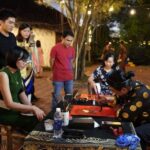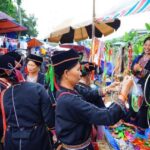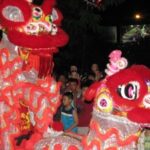The story of female general Le Hoa, also known as A Lu, dates back to the time of the Trưng Sisters’ uprising against foreign invaders. At just 18 years old, Le Hoa chose to forgo marriage and instead dedicate herself to the battlefield. With her exceptional talent, she became a trusted female general in the Trưng Sisters’ army and was bestowed the title of “Female Historian of Heroic Wind.” Some records even suggest that she was a strategist, playing a crucial role in providing intelligence and tactical advice, ultimately leading to the defeat of Tô Định’s army.
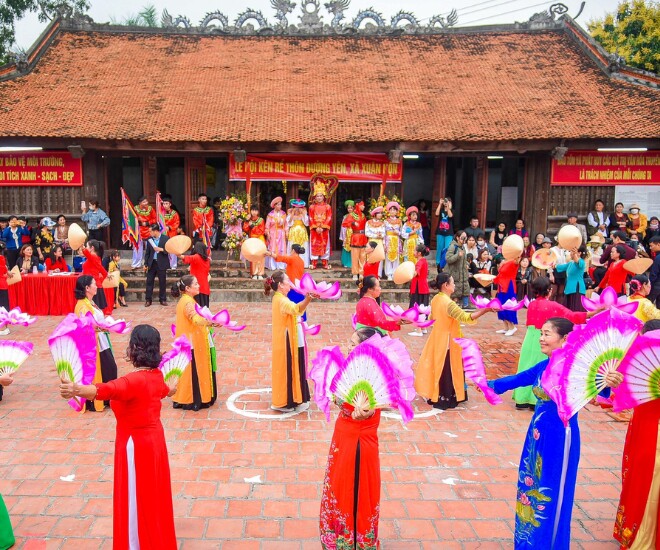
Come the second lunar month, Đường Yên village buzzes with the unique groom-selection festival.
Following their great victory, the Trưng Sisters ascended to the throne and recaptured 65 citadels from the enemy. General Le Hoa was entrusted with the role of magistrate of Đông Ngàn district, establishing her base in Đường Yên village. Here, after the country had achieved peace, she organized a groom-selection festival to fulfill her duty as a daughter to marry and start a family.
The festival consists of two parts: a solemn ceremonial procession and a lively folk game section. The ceremony involves a grand procession to escort the village deity from the temple to the communal house for a ritual. The second part features a variety of traditional folk games unique to the cultural values of Vietnam.
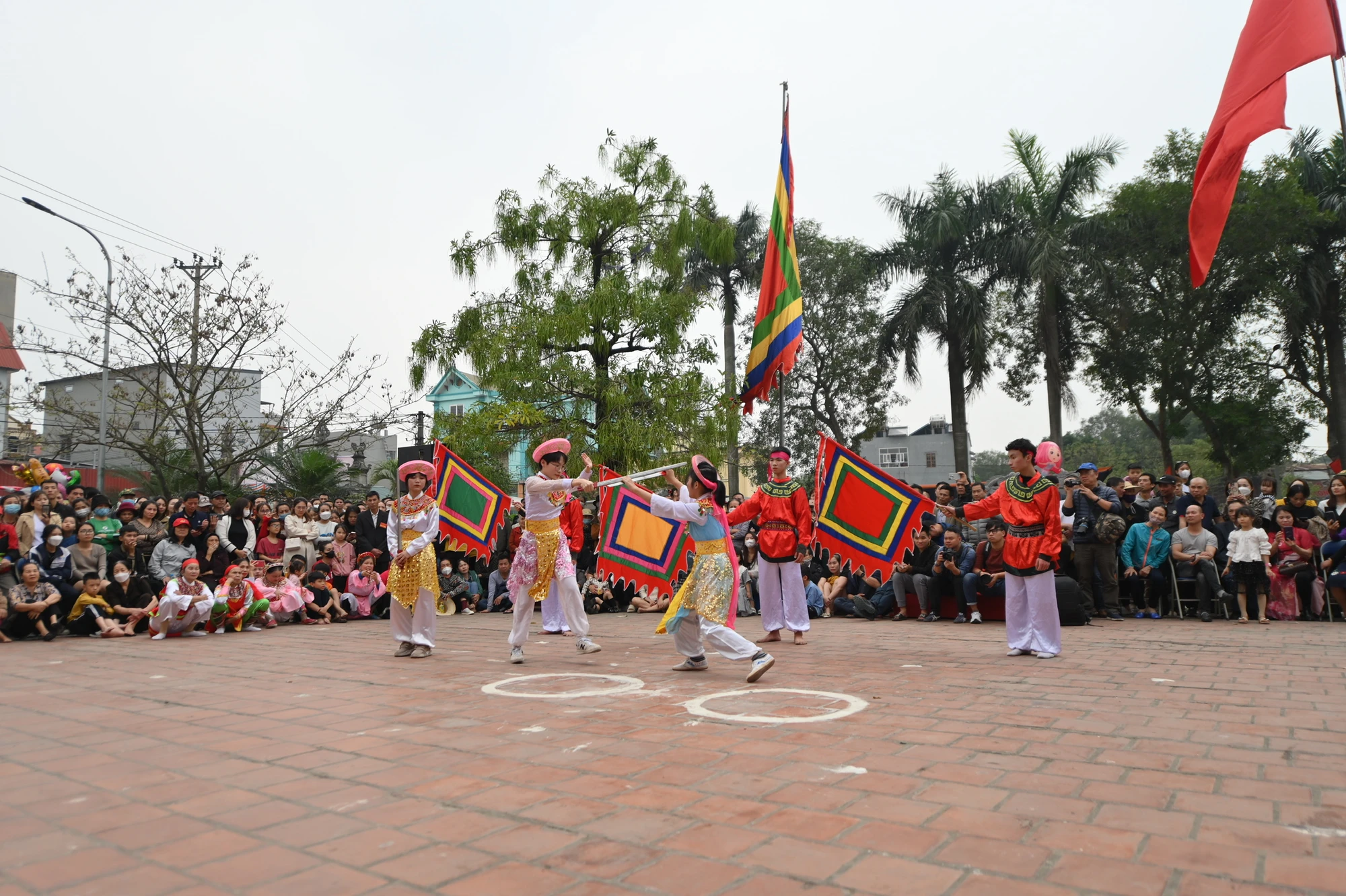
The groom-selection festival in Hanoi commemorates the achievements of female general Le Hoa, who fought alongside the Trưng Sisters.
The ceremonial procession involves a solemn ritual to escort the village deity from the temple to the communal house. Following the ceremony, the folk games commence. First is the flag dance, depicting General Le Hoa’s battle scenes, followed by a performance of ‘bỏ mo cau,’ where female general Le Hoa uses betel nut husks as armor to fight the enemy. Subsequently, various folk games from the northern midlands and Red River Delta regions are held.
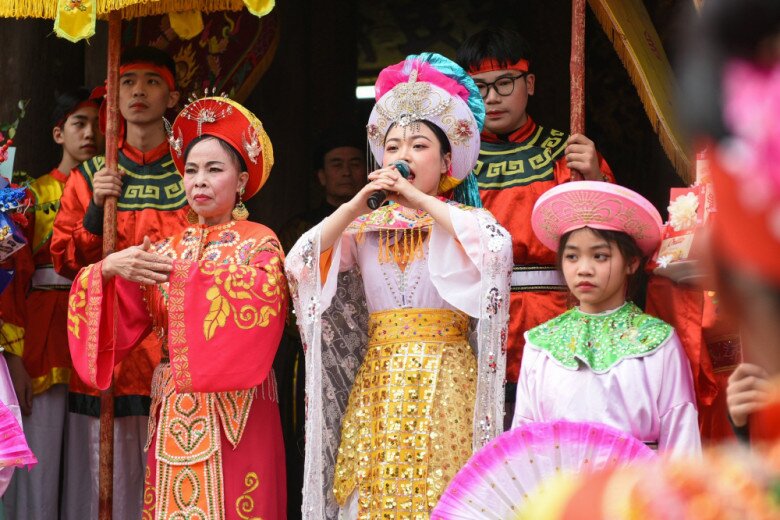
According to village customs, the selection process is meticulously prepared. The role of Le Hoa’s mother is given to a beautiful and accomplished woman from a stable family, while the roles of Le Hoa and the grooms must be played by unmarried young men and women of good character.
During the groom-selection contest, Le Hoa and her mother observe the suitors as they participate in various games. The drumbeat dictates the flow of the contest, signaling the start of each challenge. Traditionally, Đường Yên village was divided into two factions: the North and the Rear. Each faction selects a representative to compete in a series of events, including plowing, frog catching, catching loaches in a jar, and ‘chõng chó’ (provoking dogs to bark). The contest judges, consisting of five respected elders chosen by the village, evaluate the contestants and award points using tokens.
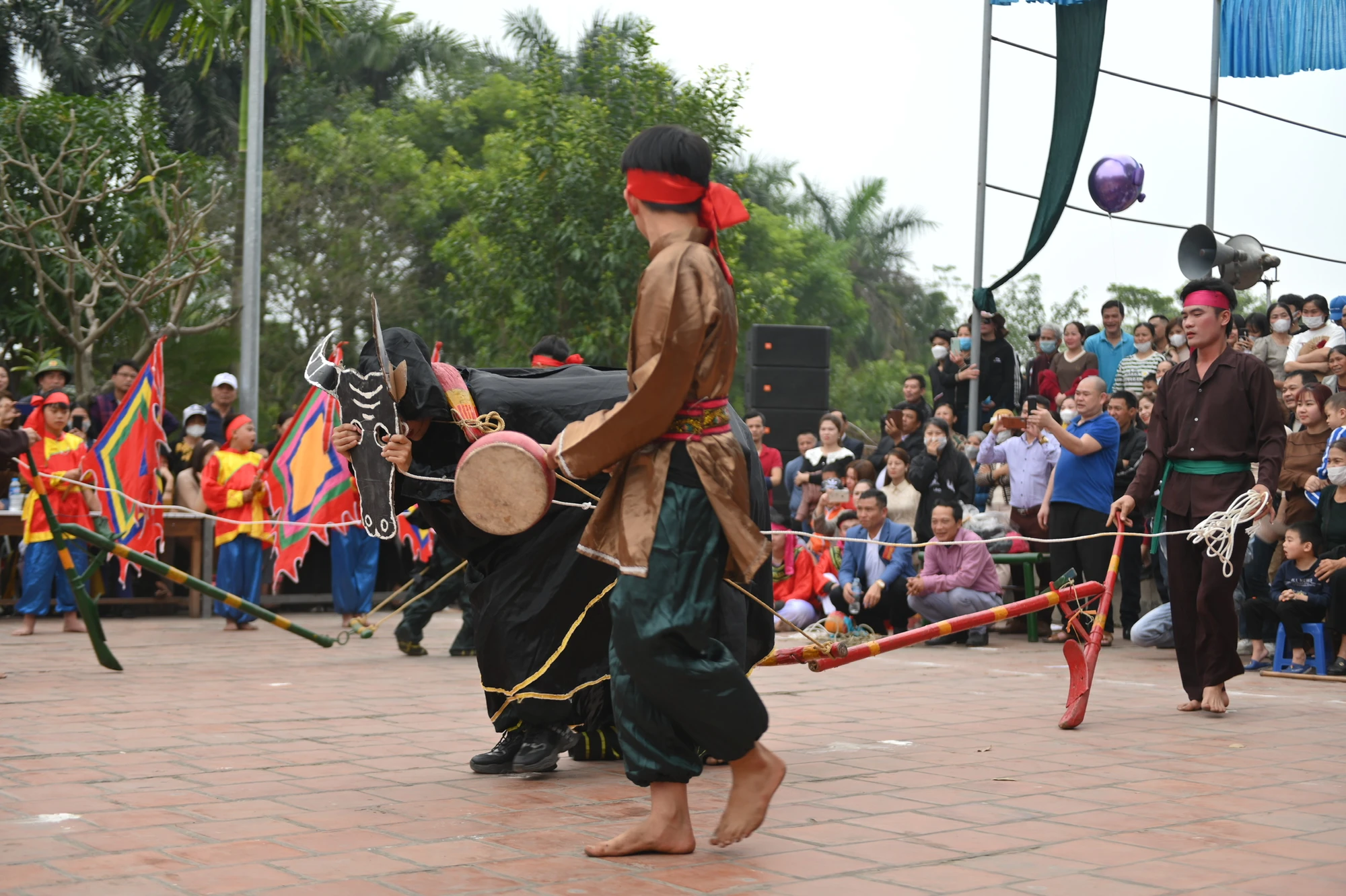
The suitors undergo three challenges: plowing, frog catching, and catching loaches in a jar, while the judges evaluate their performance.
At the end of each challenge, the judges announce the winner and award tokens accordingly. Once all challenges are completed, the judges tally the tokens to determine the overall winner. The chosen groom receives a blessing from the village deity, and the new couple performs a ritual to pay respect to their ancestors. The villagers celebrate with songs and dances, wishing the couple happiness.
After the three challenges, the judges award points using tokens. At the end of each contest, the judges declare the winner, and the tokens are added to determine the final victor.
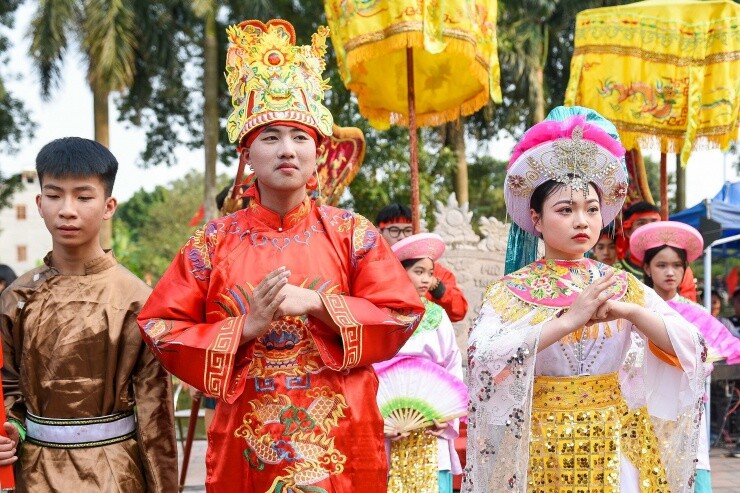
The couple formed through the festival is given the opportunity to get to know each other, and if they find happiness together, they may proceed to marry and start a life as husband and wife.
For millennia, the groom-selection festival in Đường Yên village has been a unique cultural event, honoring the contributions of female general Le Hoa. It has become an integral part of the local culture, bringing the village together to celebrate their history and enjoy the festive atmosphere. Moreover, the festival strengthens community bonds and educates younger generations about their traditional heritage.
The Rural Market Amidst Ninh Binh’s Nature Reserve: A Trove of Unique Folk Experiences
Returning to Ninh Binh, most people immediately think of famous scenic spots such as Trang An, Tam Coc, and Bich Dong. However, not far from the center, at the Van Long Nature Reserve (Gia Van commune, Gia Vien district), a unique market called “My Village’s Countryside Market” is increasingly attracting the attention of tourists from all over.
Exploring Tuyen Quang’s Unique Biennial Market, Indulging in Its Signature Treats
Every year, on the 1st and 2nd of the lunar month of February, the small village of Thon Thut in the Ham Yen district of Tuyen Quang province comes alive with a unique and vibrant market. This annual event draws visitors from far and wide, eager to immerse themselves in a traditional and vibrant cultural experience. The Thon Thut village market is a one-of-a-kind event, offering a glimpse into the rich heritage and traditions of the local community.
























